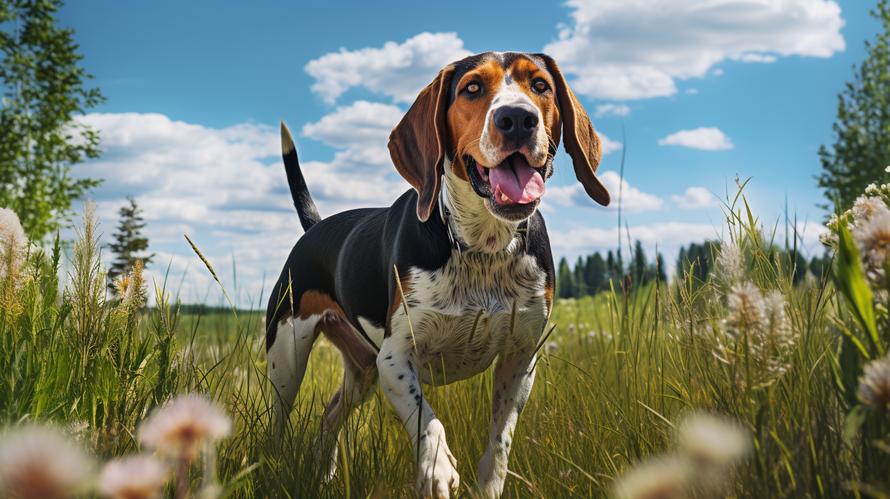Have you ever thought why the sturdy, energetic Walker Coonhounds steal the hearts of millions of dog lovers around the globe? With their exceptional trail and treeing abilities, they create an irreplaceable place in the world of working dogs. There’s much more to this breed than many might know. Intriguingly, the history and lineage of Walker Coonhounds can be traced back to an American president.
Crazy, right? Yes, Walker Coonhounds, mostly known as “Walkers” among their fans, owes its origins to George Washington! Now, how many dog breeds can boast that?
The Walker Coonhound was first bred by John W. Walker and George Washington Maupin during the late 19th century in Walker County, Kentucky. How cool is that? They were primarily hunting dogs, proficient in seeking out raccoons and other small game. They are agile, speedy, and come with an unmatched sense of smell. But are they healthy dogs? Let’s dive deep into their health profile.
Their sturdy build and inborn hunting instincts make them the perfect canine companions for outdoor enthusiasts. However, like all dog breeds, they too come with their own set of health challenges. This doesn’t mean that every Walker Coonhound will be afflicted with these issues, but it’s essential to be aware of what they might face as part of its breed.
First and foremost, obesity is a potential concern among Walker Coonhounds, not because of an inherent predisposition, but due to their high-energy nature. These dogs require active lifestyles. If not given sufficient exercise, their unburned calories could lead to weight gain. Therefore, regular physical activities like walking, hiking, and play sessions can help keep obesity at bay.
Hip dysplasia is also seen commonly in the Walker breed. It occurs when the hip joint and the femur don’t fit together as they should, causing pain and discomfort. This condition can range from mild to severe, and in some cases, may necessitate surgery. Regular check-ups and consultation with a trusted vet could help to manage this condition efficiently.
With these dogs, you may also need to watch out for ear infections. Walker Coonhounds have droopy ears that are not well-ventilated, making those flaps an ideal breeding ground for bacteria. Regular ear cleaning with vet-approved solutions can help nip this problem in the bud.
On a positive note, with the right care and regular health checks, Walker Coonhounds can live up to 13-14 years on an average, a life expectancy that ranks impressive amongst many breeds. Apart from these concerns, Walkers are generally healthy dogs capable of leading an active and energetic lifestyle.
Feeding them a balanced diet is one useful advice to keep them in great shape. Like all dogs, Walkers need foods rich in proteins, fibers, healthy fats, and complex carbohydrates. Depending on the dog’s size, age, and activity level, the dietary needs will vary.
Lastly, remember that preventative care is better than reactive care. Thus, regular check-ups, heartworm testing, and preventive flea and tick treatments are highly recommended. Make sure to adhere to the vaccination schedule provided by the veterinarian.
In conclusion, the hearty and robust Walker Coonhounds can prove to be an incredible companion. They might come with certain health concerns, like many breed, but these can be efficiently managed with the right care and attention. While the path may come with few bumps, the love and companionship a Walker Coonhound offers make the journey truly worthwhile.
There you have it—a complete health overview of the marvelous Walker Coonhound. Remember, knowing in-depth about the breed is the first step to becoming a responsible pet-owner. If you’re considering adding a Walker to your family, get ready for an incredible journey ahead filled with excitement, energy, and unconditional love. After all, every dog, just like the brave and enduring Walker Coonhound, has its day!



